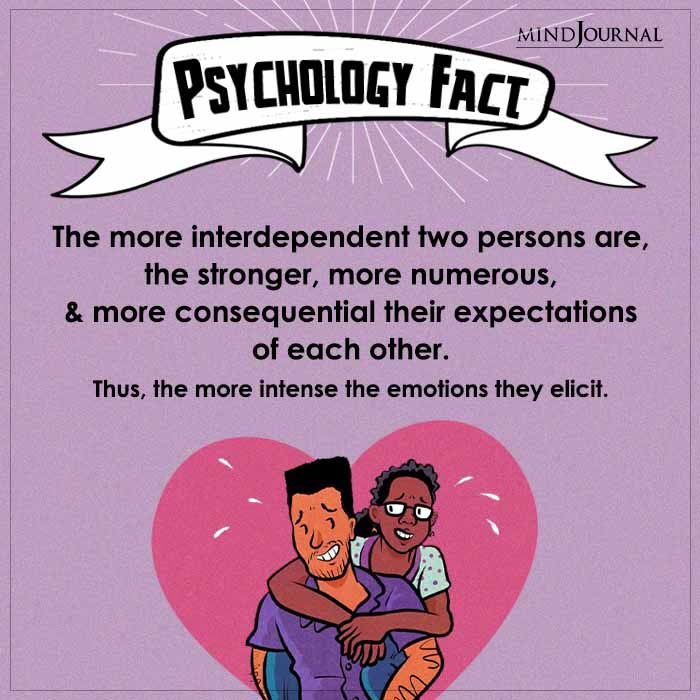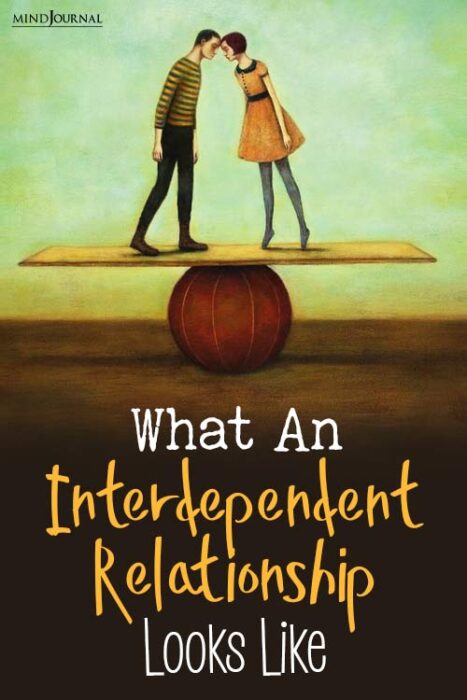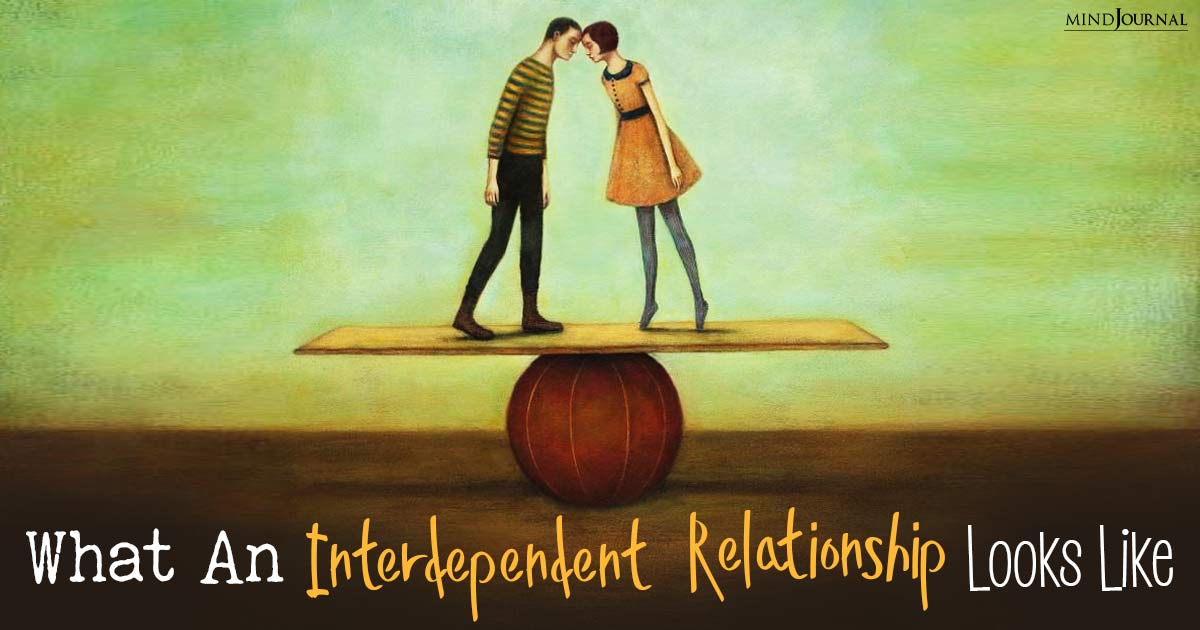Interdependent relationships form the bedrock of romantic success, fostering mutual growth and unwavering support. Discover the key to a thriving love life!
To feel free in an interdependent relationship is the goal of recovery. It requires autonomy, self-esteem, and boundaries. Being able to envision what a healthy relationship looks like can help us modify our behavior to overcome codependency.
It’s paradoxical that autonomy supports a healthy relationship and we can feel even freer while in one. In fact, a balance of autonomy and intimacy makes the relationship more stable.

One of the differences between codependent and interdependent relationships is that codependent relationships are usually enmeshed. The boundaries between partners are blurred. Dependency is a core symptom that both causes and reflects these dysfunctional boundaries.
The Difference between Interdependence and Independence
Independence and Interdependence differ. Independence connotes focus on oneself; while interdependence includes the needs and feelings of the other person in the relationship, but not to the exclusion of oneself as in codependency.
We learn relational styles in childhood. Girls are socialized to be considerate, helpful, caring, cooperative, and concerned for others. These are interdependent characteristics.
In contrast, generally, boys are encouraged to be more assertive, autonomous, and independent. Parents give boys more freedom than their sisters but also may be expected to hold a job.
Read more here: Independence or Interdependence: What Should be The Goal of Maturity?
For example, they may be allowed to date earlier, stay out later, drive a car, and leave home sooner than girls. We also learn how to behave by observing role models in the family, school, organizations, and the media.
Self-esteem is also learned in childhood. Boys score higher on self-esteem in adolescence. Their greater autonomy likely contributes to this, while teenage girls and women are socialized to be attractive to the opposite sex.
Let’s see how autonomy, self-esteem, and healthy boundaries work together to create interdependent, satisfying relationships.
What Is An Interdependent Relationship Like – 3 Signs
1. Autonomy
As codependency progresses in a relationship, often people choose to spend time with their partner rather than their friends.
This is fine in a new relationship, but often codependents stop seeing their friends, particularly if their partner disapproves or dislikes one of their friends. In recovery, it’s encouraged to maintain your own friendships.
Many codependents haven’t developed their interests, don’t have hobbies, and don’t know what they like or want. If they do, once partnered, they let them go and instead participate in the interests and activities of their partner; or worse, neither partner has outside interests, and the whole relationship focuses on one another.
Independence is often a stage in recovery before being able to have an interdependent relationship. See the Stages of Codependency Addiction.
Recovery emphasizes becoming autonomous, getting to know yourself, and developing your independent interests. You become a whole and mature individual.
The difference between independence and autonomy is that the former means you don’t need help from others, while autonomy means that you have free will and that you can stand behind your actions and their values.
It requires that we know what we think, feel, need, want, and believe. In recovery, it’s important to get to know yourself and to express your individual thoughts, needs, feelings, and wants., rather than defer to others.
2. Self-Esteem
Self-esteem is the basis of an equal interdependent relationship and ensures its longevity. It requires that we know ourselves and also that we respect and honor our opinions, feelings, needs, wants, and beliefs.
We don’t feel guilty or selfish about expressing them. With autonomy and self-esteem, we don’t surrender our opinions, needs, and wants without considering ourselves.
We think about our needs and wants rather than just go along to get along. We don’t people-please but are able to compromise rather than be rigid and inflexible. With greater self-esteem, we’re okay to disagree and don’t feel we have to change our partner’s views to feel okay about ourselves. This extends to our partner.
The more we accept our uniqueness, the more tolerant we can be of our partner’s opinions, habits, and personality. Of course, if they violate our values or impact us too negatively, we can ask for change, compromise, or decide to leave the relationship.
Examples of the latter might be a partner who lacks moral character, is violent, chronically lies, has a serious addiction, or is unfaithful.
Read more here: Needing Each Other Without Drama: The Sweet Spot of Interdependence
3. Boundaries
To survive, all relationships – even with our children – require boundaries. In an interdependent relationship, we are assertive and have clear, flexible, healthy boundaries.
They define what we behavior will and will not accept, how we want to be treated, and what we want for ourselves.
Self-esteem demands that we be treated fairly and equally. We believe we have rights, which entitle us to set boundaries. We care about ourselves enough to say no to abuse and stop our partner from disparaging, exploiting, invading our privacy, or controlling us. We don’t feel obligated to share private communications with our partner, and we respect the same for him or her.
Autonomy and self-esteem allow us to enjoy our own company and value and claim alone time. Because we’re autonomous, we’re less reactive to our partner’s feelings. We respect their needs and allow our partner independence without feeling abandoned or afraid that the relationship is threatened.
Of course, people and relationships vary in their need for time together and apart. However, with autonomy, we can ask for intimacy as a preference without coming from fear of losing ourselves. Then, we’re less likely to trigger our partner’s defensiveness. This creates a safe and secure relationship.
If our partner disrespects our rights and boundaries or has habits or a lifestyle that we cannot tolerate, then we’re able to leave the relationship without feeling guilty. We know that we can manage on our own.
Naturally, financial independence makes this easier and is preferable, but I intentionally didn’t list it, because it isn’t a requirement for an interdependent relationship. Emotional independence is far more important. Even if one partner is the breadwinner, the couple can treat each other with mutual respect and as equals.
To speed recovery, practice the exercises in the classes How to Raise Your Self-Esteem and How to Be Assertive. Follow the steps to recovery in Codependency for Dummies.
If you’re in a relationship with someone abusive, you can change that dynamic or leave by following the guidelines in Dating, Loving, and Leaving a Narcissist: Essential Tools for Improving or Leaving Narcissistic and Abusive Relationships.
In a world that often promotes individualism and self-reliance, interdependence serves as a reminder that we are not meant to walk this journey alone. Let us celebrate the strength of unity, the joy of collaboration, and the transformative power of connection!
© 2023 Darlene Lancer
Written By Darlene Lancer JD LMFT
Originally Appeared On What Is Codependency
Read more here: https://themindsjournal.com/when-need-each-other-interdependence/









Leave a Reply
You must be logged in to post a comment.